Vasantrao More (More Kaka) | |
|---|---|
| MP | |
| Succeeded by | See Raver constituency |
| Constituency | Erandol |
| Personal details | |
| Born | 1 April 1947 Tehu-Parola-Jalgaon,Maharashtra |
| Political party | NCP |
| Residence | Parola,India |
As of 25 September,2008 Source: | |
Advocate Vasnatrao J More (born 1 April 1947) is a member of the 14th Lok Sabha of India. He represents the Erandol constituency of Maharashtra and is a member of the Nationalist Congress Party (NCP) political party.
Politics of India works within the framework of the country's Constitution. India is a parliamentary secular democratic republic in which the president of India is the head of state & first citizen of India and the Prime Minister of India is the head of government. It is based on the federal structure of government, although the word is not used in the Constitution itself. India follows the dual polity system, i.e. federal in nature, that consists of the central authority at the centre and states at the periphery. The Constitution defines the organizational powers and limitations of both central and state governments; it is well recognised, fluid and considered supreme, i.e. the laws of the nation must conform to it.

The Bharatiya Janata Party is a political party in India and one of the two major Indian political parties alongside the Indian National Congress. Since 2014, it has been the ruling political party in India under the incumbent Prime Minister Narendra Modi. The BJP is aligned with right-wing politics and has close ideological and organisational links to the Rashtriya Swayamsevak Sangh (RSS) volunteer paramilitary organisation. Its policies adhere to Hindutva, a Hindu nationalist ideology. As of January 2024, it is the country's biggest political party in terms of representation in the Parliament of India as well as state legislatures.

The Indian National Congress (INC), colloquially the Congress Party or simply the Congress, is a political party in India with deep roots in most regions of India. Founded in 1885, it was the first modern nationalist movement to emerge in the British Empire in Asia and Africa. From the late 19th century, and especially after 1920, under the leadership of Mahatma Gandhi, the Congress became the principal leader of the Indian independence movement. The Congress led India to independence from the United Kingdom, and significantly influenced other anti-colonial nationalist movements in the British Empire.
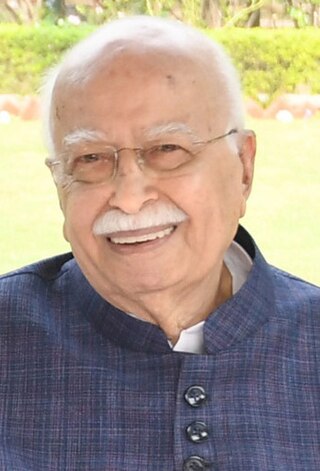
Lal Krishna Advani is an Indian politician who served as the 7th Deputy Prime Minister of India from 2002 to 2004. He is one of the co-founders of Bharatiya Janata Party (BJP) and a member of the Rashtriya Swayamsevak Sangh (RSS), a right-wing Hindu nationalist volunteer organization. He is the longest serving Minister of Home Affairs serving from 1998 to 2004. He is also the longest serving Leader of the Opposition in the Lok Sabha. He was the prime ministerial candidate of the BJP during the 2009 general election.

Rahul Rajiv Gandhi is an Indian politician and a member of the Indian Parliament who represents the constituency of Wayanad, Kerala, in the Lok Sabha. He previously represented the constituency of Amethi, Uttar Pradesh. He is a member of the main opposition party, the Indian National Congress, and was the party president from December 2017 to July 2019. He is the chairperson of the Indian Youth Congress, the National Students Union of India and a trustee of the Rajiv Gandhi Foundation and Rajiv Gandhi Charitable Trust. He is the son of the former Prime Minister of India, Rajiv Gandhi.

Haradanahalli Doddegowda Deve Gowda is an Indian politician who served as the 11th prime minister of India from 1 June 1996 to 21 April 1997. He was previously the 14th Chief Minister of Karnataka from 1994 to 1996. He presently is a Member of Parliament in the Rajya Sabha representing Karnataka. He is the national president of the Janata Dal (Secular) party. Born in a farming family, he joined the Indian National Congress party in 1953, and remained a member until 1962. He was imprisoned during the Emergency. He became President of the state unit of Janata Dal in 1994, and was considered to be a driving force in the party's victory in Karnataka. He served as the 8th Chief Minister of Karnataka from 1994 to 1996. In the 1996 general elections, no party won enough seats to form a government. When the United Front, a coalition of regional parties, formed the central government with the support of the Congress, Deve Gowda was unexpectedly chosen to head the government and was elected Prime Minister. During his tenure as prime minister, he also served as Home Minister for some time. His prime ministerial tenure lasted for less than a year. After his prime ministerial tenure, he was elected to the 12th (1998), 14th (2004), 15th, and 16th Lok Sabha, as Member of Parliament for the Hassan Lok Sabha constituency. He lost Lok Sabha elections in 2019 from Tumkuru but has been elected to Rajya Sabha since.

The Communist Party of India (Marxist) (abbreviated as CPI(M)) is a communist political party in India. It is the largest communist party in India in terms of membership and electoral seats, and one of the national parties of India. The party was founded through a splitting from the CPI in 1964 and it quickly became the dominant fraction.

The Communist Party of India (CPI) is the oldest communist party in India. The CPI was founded in modern-day Kanpur on 26 December 1925. Currently, it has two members in Lok Sabha and two members in Rajya Sabha. In addition, it has 22 MLAs across four states and one MLC in Bihar. It has the current ECI status of a state party in Tamil Nadu, Kerala and Manipur.
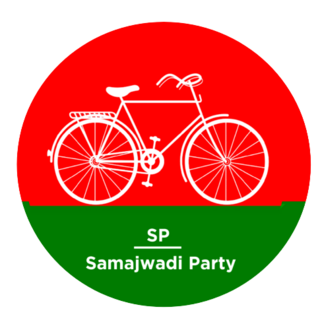
The Samajwadi Party is a socialist political party in India. It was founded by formerly Janata Dal politicians Mulayam Singh Yadav and Beni Prasad Verma and is headquartered in New Delhi. The Samajwadi Party is currently led by former Chief Minister of Uttar Pradesh, Akhilesh Yadav. He was chosen as the President for the first time in an Emergency meeting in 2017. He was chosen for second time in 2017 at Agra Convention of Samajwadi Party. He was chosen for the third time at the party's national convention held in September 2022 at Lucknow.

The Telugu Desam Party is an Indian regional political party with great influence in the states of Andhra Pradesh and Telangana. It was founded by the former chief minister of Andhra Pradesh N. T. Rama Rao (N.T.R.) on 29 March 1982 and has focused on supporting Telugu speakers. The party has won a five-time majority in the Andhra Pradesh Legislative Assembly and has emerged as the most successful political outfit in the state's history. It is currently the main opposition party in the Andhra Pradesh Legislative Assembly.

General elections were held in India in four phases between 20 April and 10 May 2004. Over 670 million people were eligible to vote, electing 543 members of the 14th Lok Sabha. Seven states also held assembly elections to elect state governments. They were the first elections fully carried out with electronic voting machines.
The State Legislative Assembly, or Vidhan Sabha, also called Vidhana Sabha, or Saasana Sabha, is a legislative body in each of the states and certain union territories of India. In 22 states and 3 union territories, there is a unicameral legislature which is the sole legislative body. In 6 states, the legislative assembly is the lower house of their bicameral legislature with the upper house being the State Legislative Council. 5 union territories are governed directly by the Union Government of India and have no legislative body.

General elections were held in India between 25 October 1951 and 21 February 1952, the first after India attained independence in 1947. Voters elected the 489 members of the first Lok Sabha, the lower house of the Parliament of India. Elections to most of the state legislatures were held simultaneously.
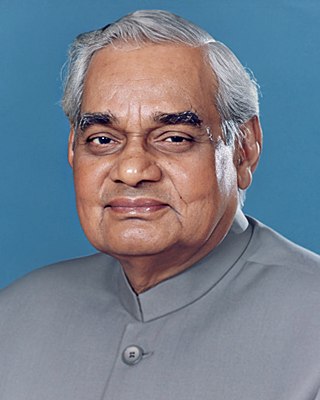
General elections were held in India on 27 April, 2 May and 7 May 1996 to elect the members of the eleventh Lok Sabha. The elections resulted in a hung parliament with no single party having a clear majority. The Bharatiya Janata Party, which had won the most seats, formed a short-lived government under Prime Minister Atal Bihari Vajpayee. However, two weeks later the United Front coalition was able to secure a parliamentary majority and H. D. Deve Gowda of Janata Dal became Prime Minister. In 1997 Inder Kumar Gujral, also from the United Front, succeeded Gowda as Prime Minister. Due to the instability, early elections were held in 1998. The elections were the first since 1980 in which every states' seats were elected in a single election period.
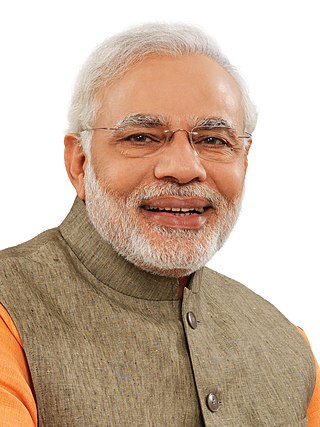
General elections were held in India in nine phases from 7 April to 12 May 2014 to elect the members of the 16th Lok Sabha. With 834 million registered voters, they were the largest-ever elections in the world until being surpassed by the 2019 elections. Around 23.1 million or 2.7% of the total eligible voters were aged 18–19 years. A total of 8,251 candidates contested the 543 elected Lok Sabha seats. The average election turnout over all nine phases was around 66.40%, the highest ever in the history of Indian general elections.
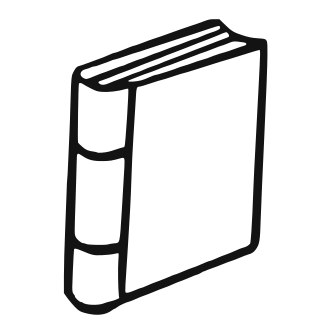
The National People's Party is a national-level political party in India, though its influence is mostly concentrated in the state of Meghalaya. The party was founded by P. A. Sangma after his expulsion from the NCP in July 2012. It was accorded national party status on 7 June 2019. It is the first political party from Northeastern India to have attained this status.

The Yuvajana Sramika Rythu Congress Party is an Indian regional political party based in the state of Andhra Pradesh. Its president, Y. S. Jagan Mohan Reddy, serves as the state's chief minister. It is currently the fifth largest party in the Lok Sabha with 22 seats.

The Aam Aadmi Party is a political party in India. It was founded on 26 November 2012 by Arvind Kejriwal and his then-companions, following the 2011 Indian anti-corruption movement against then Indian government of Indian National Congress. AAP is currently the governing party in the Indian state of Punjab and the union territory of Delhi. On 10 April 2023, AAP was officially granted the status of National party by ECI. The party's election symbol is a broom. The party is currently part of the coalition I.N.D.I.A Alliance.